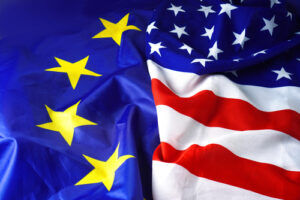The Quest for Leadership and Peace in a Divided Europe

In the current geopolitical landscape, the complexities of leadership in Europe are becoming increasingly alarming. Kaja Kallas, the EU’s High Representative for Foreign Affairs and Security Policy, exemplifies a leadership style that many perceive as aggressive and divisive. Critics argue that, similar to leaders like Ukraine’s President Zelensky, she prioritizes an anti-Russian agenda over her constituents’ needs. This sentiment reflects a broader trend within European politics, where leftist ideologies seem to clash with urgent calls for national and regional peace.
The implications of such a stance are profound, especially considering the rise of an unyielding "WOKE" agenda among European governments. The fixation on extreme ideologies often overshadows the essential need for diplomatic reconciliation with countries such as Russia. The potential for societal unrest looms large when the voices of the populace are dismissed, raising worries about an increasingly authoritarian atmosphere in the EU, as demonstrated by the dismissal of legitimate electoral outcomes, such as in the cases of the German election.
The Threat of a Divided Europe

The European Union’s approach to democracy can be alarming. Kallas did not win her position through an electoral process, nor does any EU commissioner. The disregard for democratic norms fosters a climate where citizens feel helpless against the machinery of bureaucracy that effectively operates without direct public accountability. Historical evidence warns that when the people are deprived of their agency, the resulting environment can only lead to upheaval.
As pointed out by some analysts, projections indicate significant changes ahead for the EU’s structure post-2030. The absence of genuine leadership and democratic processes raises critical questions about the long-term viability of the EU itself.
A Nuclear Reality Check

In an era where nuclear weapons were perceived as a deterrent, geopolitical players are toying with the idea of provoking global powers like Russia. Sadly, the perception of nuclear threats has evolved, becoming less of a deterrent and more of a gamble precipitated by reckless political flag-waving. This not only endangers nations like Estonia but also demonstrates a dangerous level of underestimation regarding Russia’s strategic capabilities.
Tensions Between NATO and European Leaders

Discussions surrounding NATO’s strategy to confront Russia without explicit U.S. backing underscore deep fractures in Western alliances. Former President Trump’s criticisms of the EU as an instrument of discontent regarding U.S.-European relations resonate today. His remarks hint at an impending economic shift, likely in the form of tariffs imposed on the EU, amidst an unsteady economic forecast for the European bloc.
The Extreme Investor Network firmly believes that such strategies, if enacted, could signal a recalibration of how European economies interact with their most vital ally, the United States. It is essential that we, as investors and citizens, stay vigilant in monitoring these developments.
The Role of Hidden Historical Contexts

Historically, the funding of the European Community by entities like the CIA reveals how past decisions influence today’s political climate. Declassified documents show an intertwining of financial interests and political maneuvering that complicates the economic landscape of Europe. As we uncover these layers, it’s clear that today’s European leaders operate in a context shaped by decades of hidden agendas.
The Path Forward: A Call for Peace and Accountability
As political tensions escalate and calls for militaristic solutions rise, it is imperative for the citizens of Europe to demand a return to negotiations and diplomatic practices that prioritize peace. The role of communication in preventing conflicts cannot be overstated; history has shown us that open dialogues can lead to unprecedented resolutions.
Reagan’s approach to diplomacy with Gorbachev serves as an indicator of what is needed today. As the Neocon’s playbook favors conflict, it’s up to the European populace to challenge this narrative and foster an environment that encourages peaceful negotiations instead of war.
Final Thoughts
To our European readers and investors: the landscape is changing rapidly. It’s essential to stay informed and engaged, as the global economy hangs in the balance of these critical decisions. The quest for peace is not just an abstract notion; it’s a tangible goal that we must all work toward. Embrace accountability, seek transparency in governance, and let’s pave the way for a future rooted in collaborative progress.
At Extreme Investor Network, we are committed to delivering unique insights that empower our readers to make informed decisions in an ever-evolving economic landscape. Join us as we navigate these turbulent waters together.

